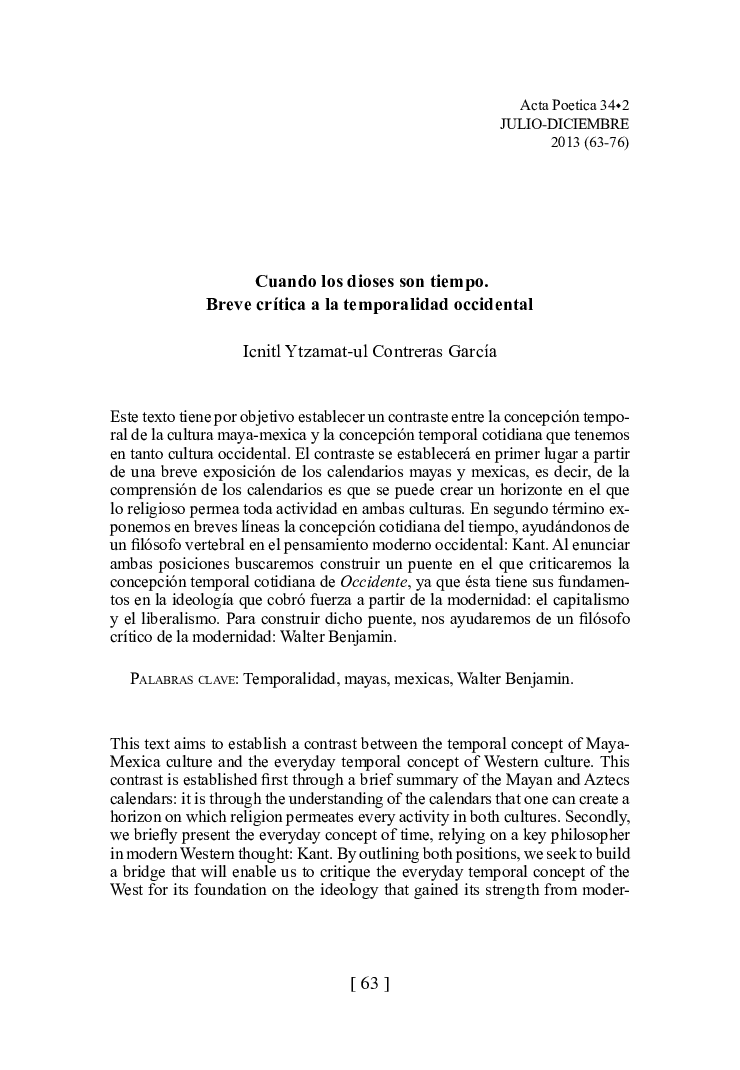| Article ID | Journal | Published Year | Pages | File Type |
|---|---|---|---|---|
| 1157666 | Acta Poética | 2013 | 14 Pages |
Este texto tiene por objetivo establecer un contraste entre la concepción temporal de la cultura maya-mexica y la concepción temporal cotidiana que tenemos en tanto cultura occidental. El contraste se establecerá en primer lugar a partir de una breve exposición de los calendarios mayas y mexicas, es decir, de la comprensión de los calendarios es que se puede crear un horizonte en el que lo religioso permea toda actividad en ambas culturas. En segundo término exponemos en breves líneas la concepción cotidiana del tiempo, ayudándonos de un filósofo vertebral en el pensamiento moderno occidental: Kant. Al enunciar ambas posiciones buscaremos construir un puente en el que criticaremos la concepción temporal cotidiana de Occidente, ya que ésta tiene sus fundamentos en la ideología que cobró fuerza a partir de la modernidad: el capitalismo y el liberalismo. Para construir dicho puente, nos ayudaremos de un filósofo crítico de la modernidad: Walter Benjamin.
This text aims to establish a contrast between the temporal concept of Maya-Mexica culture and the everyday temporal concept of Western culture. This contrast is established first through a brief summary of the Mayan and Aztecs calendars: it is through the understanding of the calendars that one can create a horizon on which religion permeates every activity in both cultures. Secondly, we briefly present the everyday concept of time, relying on a key philosopher in modern Western thought: Kant. By outlining both positions, we seek to build a bridge that will enable us to critique the everyday temporal concept of the West for its foundation on the ideology that gained its strength from modernity: capitalism and liberalism. To build this bridge, we refer to a critical philosopher of modernity: Walter Benjamin.
